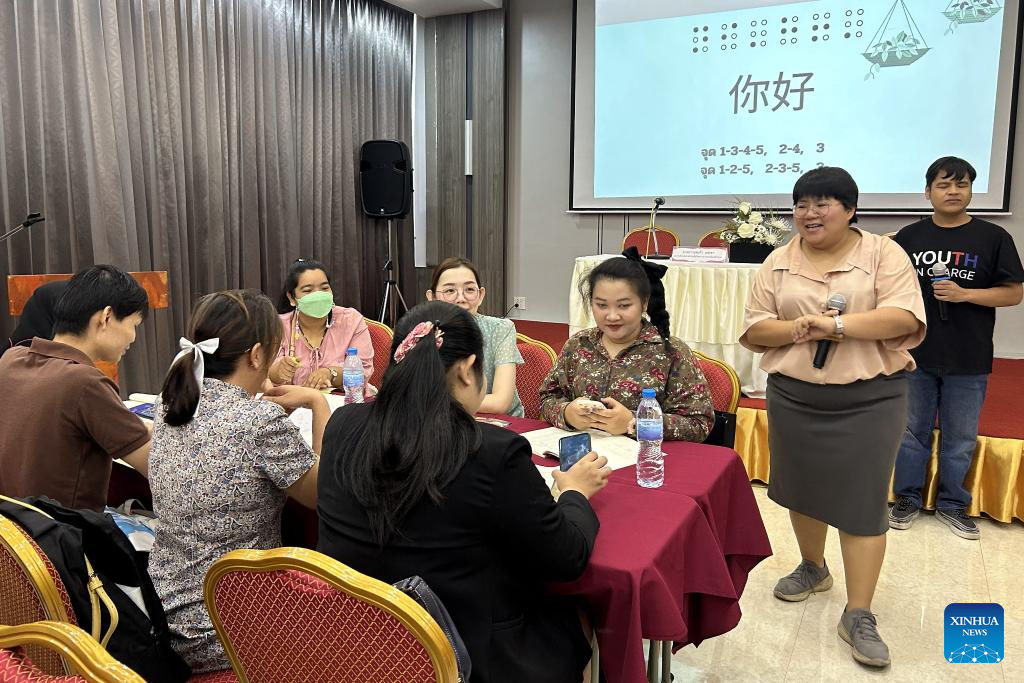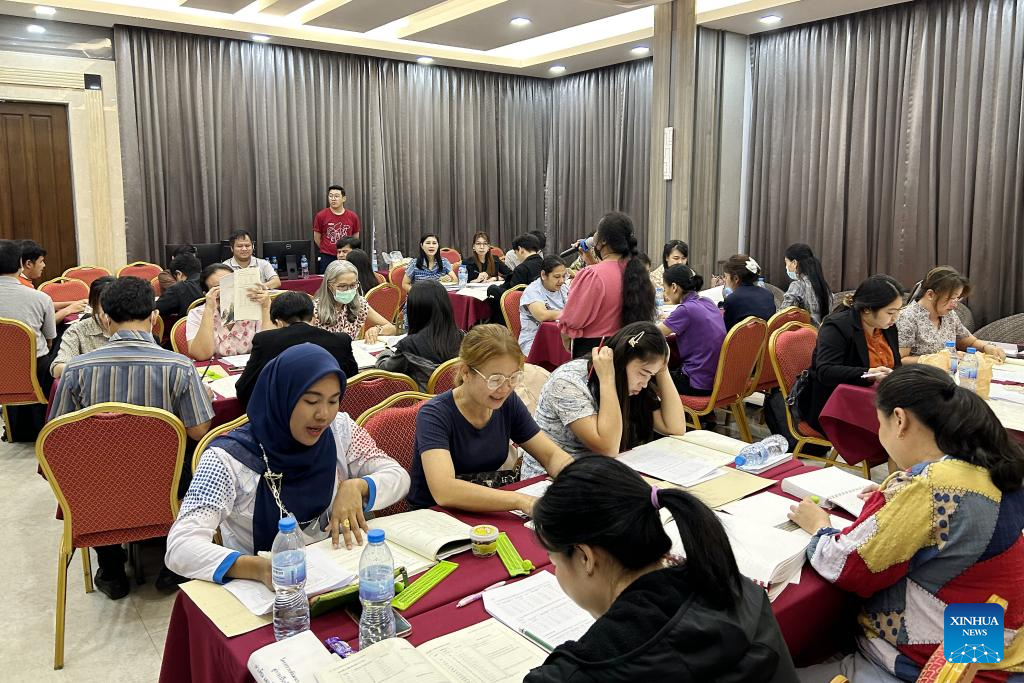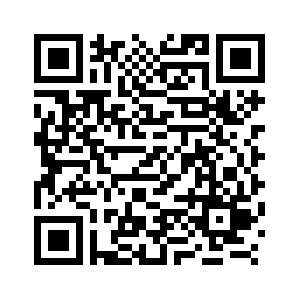
Thai blind school teachers and Chinese language teachers participate in the Chinese Braille textbook training organized by the Thailand Association of the Blind in Pattaya, Thailand, July 23, 2023. (Xinhua)
BANGKOK, Jan. 4 (Xinhua) -- In a room at Thailand Association of the Blind, a blind teacher sang a classic Chinese song "The Moon Represents My Heart," and the beautiful voice touched everybody at the scene.
Nantaporn Gonram, a 30-year-old teacher, works at the Bangkok School for the Blind. Though Nantaporn was born blind, her love for Chinese has become a shining light during growing up. Nantaporn has been fascinated by Chinese songs since childhood and has been learning Chinese since high school.
"At first, I just thought the pronunciation of Chinese was good, and then I gradually learned about the profoundness of Chinese culture through learning," Nantaporn said.
As the first blind student who graduated from the School of Sinology of Mae Fah Luang University in 2022, Nantaporn participated in the first Thai Chinese Braille textbook training last year.
Braille, also known as embossed characters, is a type of character specially designed for blind people that relies on tactile perception. The six-dot system is a universal Braille system used by the world, which could express meanings through different arrangements of the six dots.
Before Jan. 4th, World Braille Day, Tevapong Puangpetch, chairman of the Thai National Braille Promotion and Development Fund, showed the Chinese Braille textbooks which were published recently to reporters from Xinhua.
The fund is affiliated with the Thailand Association of the Blind. There are currently 17 blind schools in Thailand. With the economic and cultural exchanges deepening between China and Thailand in recent years, more and more blind schools have begun to offer Chinese courses, and the demand for Chinese Braille textbooks has become increasingly urgent, said Tevapong.
"If visually impaired students want to learn Chinese well, in addition to listening and speaking skills, reading and writing are also important," said Tevapong.
He added that the Chinese teaching of Mae Fah Luang University is excellent, and they have the experience of teaching visually impaired students.
Last year, the Thailand Association of the Blind collaborated with teachers from the School of Sinology of Mae Fah Luang University, to compile Chinese Braille textbooks, aiming to help visually impaired students learn Chinese reading and writing more conveniently and efficiently.
Noppakao Saekhow, a lecturer from the School of Sinology of Mae Fah Luang University, is one of the authors of Chinese Braille textbooks.
Noppakao said the Thai school lacked systematic and comprehensive Chinese Braille textbooks previously. The purpose of compiling this textbook is to target visually impaired students and blind school teachers in Thailand, and try to cover Chinese learners at different stages.
After two months of compilation and revision, the Chinese Braille textbooks were completed in the middle of last year and the first batch of 300 copies were printed with the funding of Bank of China (Thailand) for training teachers in Thai blind schools.
"Before the publication of Chinese Braille textbooks in Thailand, people usually used English Braille to notate Chinese characters, but the pronunciation was often not standard," said Nantaporn.
She added that the new textbooks not only use the Pinyin Braille system to make the pronunciation more accurate, but also add Chinese tones and provide Chinese and Thai Braille comparison, which is much more convenient than she learned Chinese before.
This year the association plans to print another 200 textbooks and promote them to many blind schools in Thailand for visually impaired students, said Tevapong. ■

Thai blind school teachers and Chinese language teachers participate in the Chinese Braille textbook training organized by the Thailand Association of the Blind in Pattaya, Thailand, July 23, 2023. (Xinhua)



